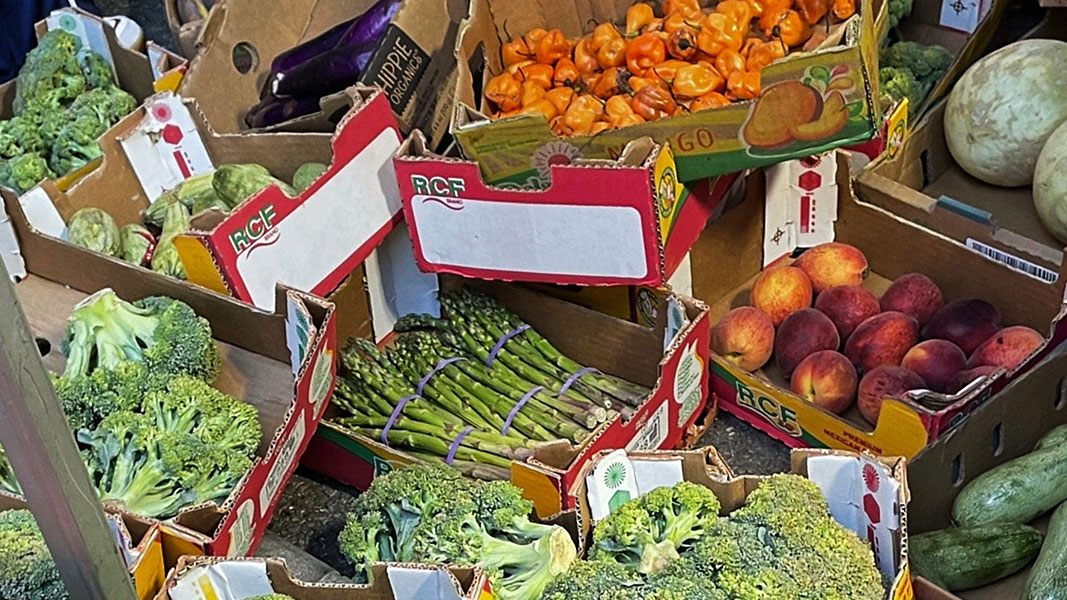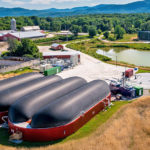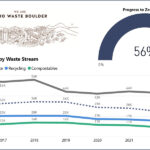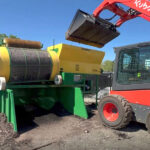Top: Multiple stakeholder groups were involved in helping to identify interventions to scale food recovery. Photo courtesy City of Boston
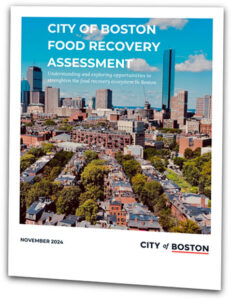 The City of Boston’s (MA) Office of Food Justice (OFJ) developed a Food Recovery Assessment report to evaluate the food recovery landscape in Boston and help identify interventions to scale recovery, increase responsiveness to community needs and reduce wastage of surplus food. Community members and food access and food recovery organizations were engaged in the assessment process, along with businesses that generate food waste, to shape the report’s findings, notes the OFJ. “Food insecurity rates among Boston residents reached 44% in 2023, and high costs of fresh foods in Massachusetts and nationally continue to place a high burden on our residents — a burden that’s felt disproportionately based on race, income, place of birth, zip code and language,” wrote Boston Mayor Michelle Wu in the report’s introduction. “At the same time, an estimated 130,000 tons of food are wasted in Boston each year. As wasted food is the cause of 58% of methane emissions across the U.S., this presents significant environmental concerns; it also represents missed opportunities to connect our residents with fresh, nutritious food.” The recommendations in the report, released in November 2024, include financial incentives to increase donation, educating food surplus generators on the importance of donation, improving the process for food recovery organizations to receive health permits along with parking accommodations for picking up donated food, and mobilizing funding to support infrastructure such as refrigeration, transportation and storage facilities.
The City of Boston’s (MA) Office of Food Justice (OFJ) developed a Food Recovery Assessment report to evaluate the food recovery landscape in Boston and help identify interventions to scale recovery, increase responsiveness to community needs and reduce wastage of surplus food. Community members and food access and food recovery organizations were engaged in the assessment process, along with businesses that generate food waste, to shape the report’s findings, notes the OFJ. “Food insecurity rates among Boston residents reached 44% in 2023, and high costs of fresh foods in Massachusetts and nationally continue to place a high burden on our residents — a burden that’s felt disproportionately based on race, income, place of birth, zip code and language,” wrote Boston Mayor Michelle Wu in the report’s introduction. “At the same time, an estimated 130,000 tons of food are wasted in Boston each year. As wasted food is the cause of 58% of methane emissions across the U.S., this presents significant environmental concerns; it also represents missed opportunities to connect our residents with fresh, nutritious food.” The recommendations in the report, released in November 2024, include financial incentives to increase donation, educating food surplus generators on the importance of donation, improving the process for food recovery organizations to receive health permits along with parking accommodations for picking up donated food, and mobilizing funding to support infrastructure such as refrigeration, transportation and storage facilities.


